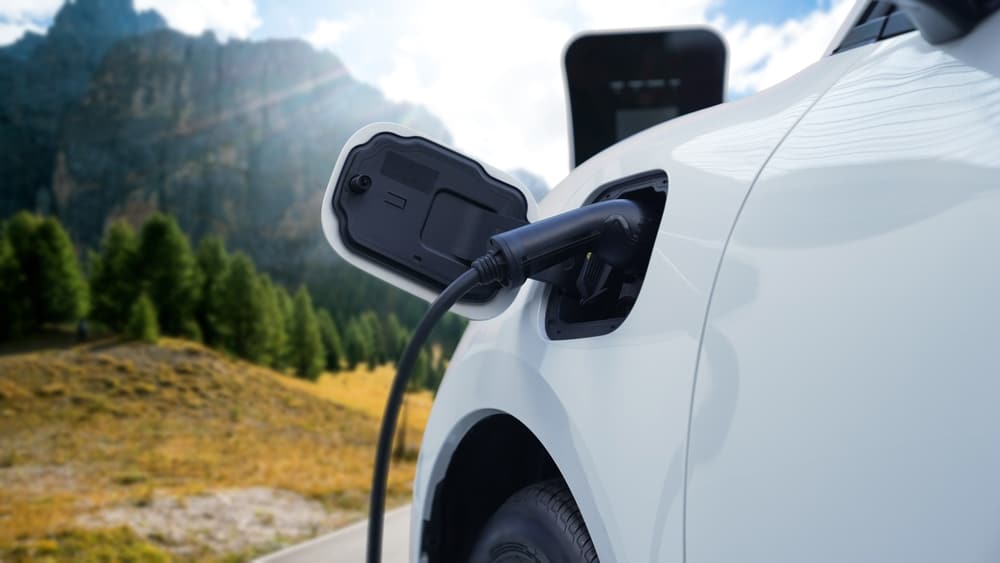As Australia gears up for a major shift in its vehicle emissions policy, caravan owners and industry leaders are voicing concerns about the unintended consequences of the incoming regulations.
According to an article by Yahoo News, the federal government’s New Vehicle Efficiency Standard (NVES), set to take effect from July, is poised to reshape the automotive market by enforcing strict carbon emissions limits on new vehicles sold in the country.
While the move is designed to accelerate the uptake of cleaner, hybrid and electric vehicles, it’s also sparking anxiety among those who rely on heavy-duty vehicles for towing caravans.
The NVES was announced last year and will impose fleet-wide emissions targets on car manufacturers.
Companies that fail to meet these targets will face financial penalties—costs that are almost certain to be passed down to consumers.
This has caravan owners, who require high-performance vehicles to tow their rigs across long distances, especially concerned.
With heavier, high-emission vehicles likely to be penalized, the price tags on these models may rise sharply.
Despite advancements in electric vehicle (EV) technology, the caravan industry argues that Australia is not yet prepared to support widespread electrification for caravanners.
Many of the newer EV utes and SUVs coming onto the market boast higher towing capacity, but hauling a heavy load significantly impacts battery performance—sometimes cutting range in half.
“Under load, we’re effectively stopping every 100km on average,” said Luke Chippindale from the Caravan Industry Association of Australia.
This is a manageable issue in urban areas with robust charging infrastructure, but becomes a major obstacle in regional and remote Australia, where most caravanning takes place.
“We as Australians travel about 690 to 900 kilometres when we go on holiday, and 99 per cent of the time that is in regional areas,” Chippindale explained.
“So we need to have vehicles that can tow across areas that aren’t going to be facilitated by infrastructure for charging,” he added.
For caravanners, the dilemma is uniquely Australian. The vast distances and infrastructure gaps make the transition to electric vehicles more complicated than in other developed countries.
Chippindale stressed the importance of this issue, arguing that the caravan sector underpins a large portion of domestic tourism and shouldn’t be financially penalized.
“We’re not against EVs and we applauded the scheme, we’re more than happy to see EVs that can tow come into the country, but we’ve effectively tried to answer the electrification question with a solution that’s not viable,” he said.
Ross De Rango, a former member of the Electric Vehicle Council and now working in the EV charging space, acknowledged that while many EVs in Australia can tow lighter trailers, “it’ll be a while before big caravans are routinely being towed long distances around the country by pure battery EV.” The technology, while progressing, still lags behind the practical needs of the caravan community.
Chippindale suggested that supplementary battery trailers—towable batteries that could recharge EVs en route—could be one potential solution, but such configurations are currently not allowed under existing laws.
“If we want to have drive tourism, if we want to have people still towing caravans, it is critical these questions are answered,” he urged.
The ripple effects of the NVES could also reach popular vehicle models. From July, vehicles like the Ford Everest 4×2 and Isuzu MU-X 4×2 may no longer be available under current classifications, due to stricter rules for passenger vehicles compared to their commercial 4×4 counterparts.
Car manufacturers including Isuzu, Mazda, and Great Wall Motors have already warned dealerships about potential fines, hinting that price hikes are likely. Even Toyota and Mitsubishi, though broadly supportive of the NVES, admit that adapting to the changes will be challenging.
The availability of high-demand models like the Toyota LandCruiser could also be impacted.
Opposition Leader Peter Dutton has pledged to scrap the financial penalties associated with the NVES if elected, claiming the costs would only exacerbate the current cost-of-living crisis.
“We believe in reducing emissions, but in a cost-of-living crisis, what government would push up the purchase price of a new vehicle?” said Deputy Opposition Leader David Littleproud.
Shadow Transport Minister Bridget McKenzie echoed that sentiment, arguing the changes could drive Australians to hold onto older, less efficient vehicles for longer.
The policy has been championed by several independent MPs, including Warringah’s Zali Steggall, who helped push for stronger emissions standards after winning traditionally conservative seats.
She criticized the opposition’s resistance, saying, “It’s like Peter Dutton and the coalition opened their policy drawer, they find it empty and they dust off an old bad policy and try and sell it.”
According to Steggall, the standards must include consequences if they’re to be effective, noting that “Australian people were not given the choice by car manufacturers because they dumped the dirtiest and the least fuel efficient cars in Australia.”
This news highlights the complex challenges facing a sector that plays a vital role in domestic tourism, particularly in regional and rural areas. As the country moves toward a greener transport future, it must ensure that policies like the NVES don’t inadvertently stifle the RV industry, limit access to necessary vehicles, or disadvantage those who explore and support Australia’s vast interior.


